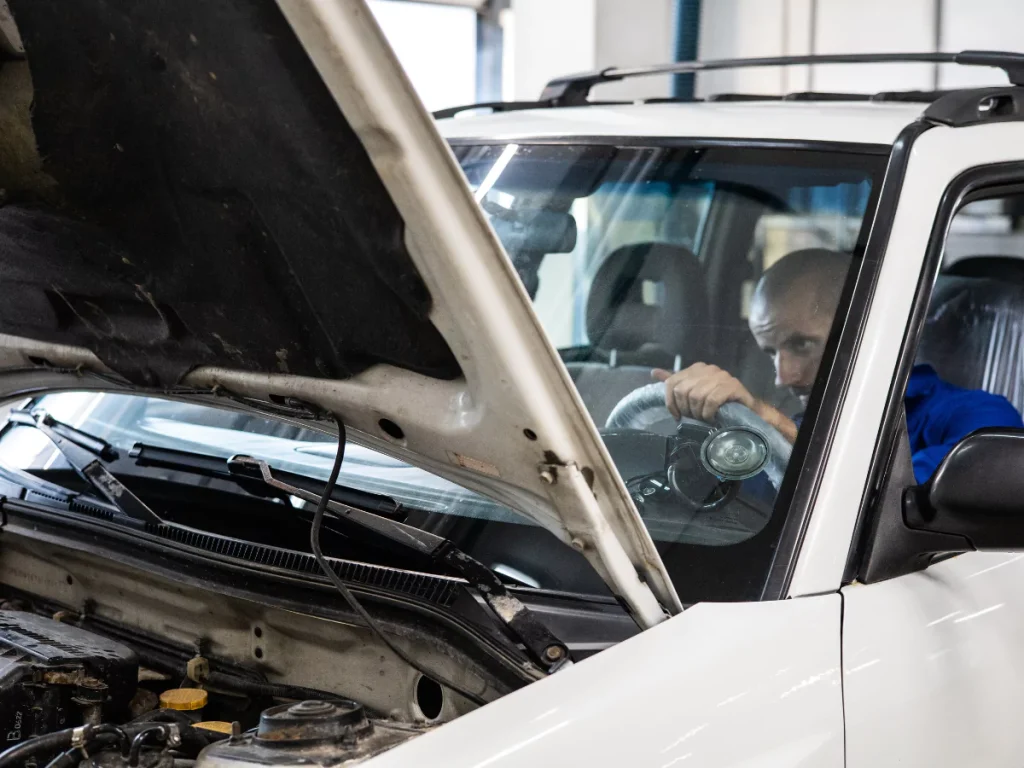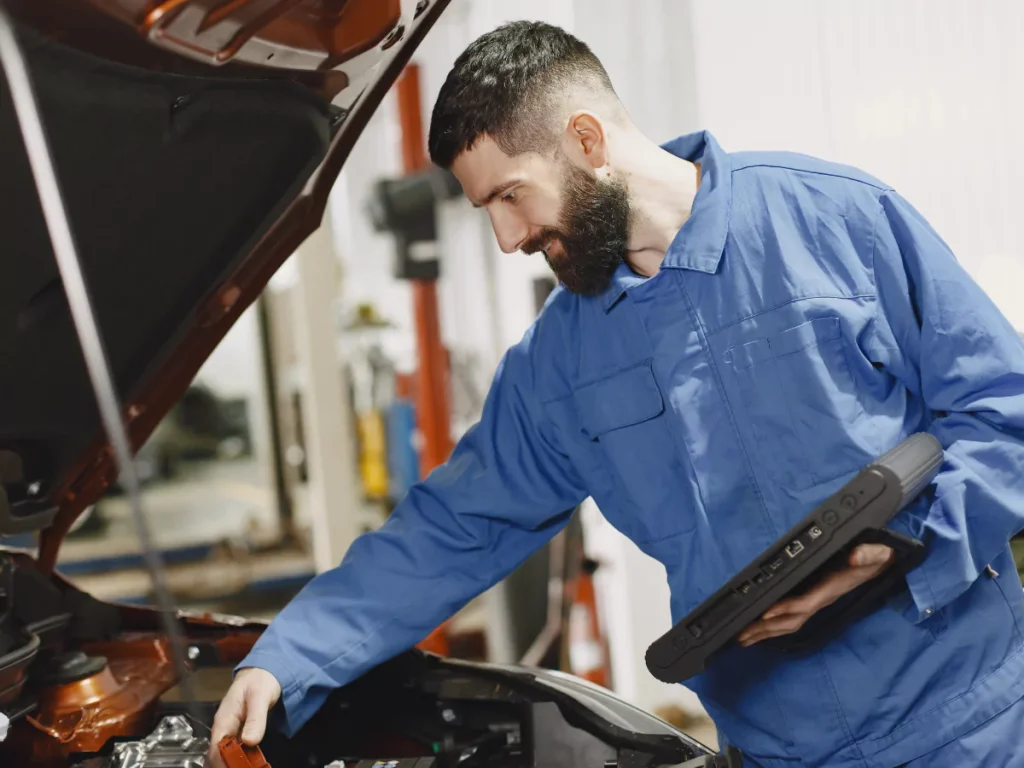Why a PPI Inspection Isn’t Optional
Buying a used car is a big deal. It might look perfect on the outside—shiny paint, clean seats, and maybe even that new car smell—but that doesn’t mean it’s mechanically sound. You’re not just buying a vehicle; you’re buying someone else’s maintenance history (or lack of it). That’s where a Pre-Purchase Inspection (PPI) steps in. It’s your safety net—the expert check-up that helps you avoid expensive surprises.
A mechanical PPI inspection goes beyond kicking the tires. It digs into the car’s performance, safety systems, wear and tear, and overall condition. It helps you know if you’re making a smart investment—or walking into a money pit. If you’re in Lakewood Place, there’s one name that drivers trust for this: Texas First Auto Inspections. We’ll explain why later—but first, let’s unpack exactly what’s included in a thorough mechanical PPI inspection.
What Is a Pre-Purchase Inspection (PPI)?
A PPI is a professional evaluation of a used vehicle before purchase. It’s usually performed by a third-party auto technician or inspection service—not the seller—so you get unbiased feedback on the car’s condition.
The goal is simple: give you full transparency. It answers questions like:
- Is the car worth the asking price?
- Are there hidden issues not visible to the naked eye?
- What repairs might be needed soon?
- Has the vehicle been in an accident or poorly repaired?
Think of it as a mechanic’s version of a detective report.
When Should You Get a Mechanical PPI?
A mechanical PPI should always happen before you buy a used car—ideally before signing anything or making a deposit. It’s particularly important when:
- Buying from a private seller
- Purchasing a car “as-is”
- The car is out of warranty
- It’s a luxury or imported vehicle
- You’re buying remotely or online
Even dealers can miss things. Some might intentionally overlook them. A proper inspection helps you walk into the deal with eyes wide open.

Exterior Inspection: More Than Just Scratches
At first glance, a car’s exterior might seem flawless. But trained eyes look for more than just surface-level appeal.
Body Panels and Paint Condition
Inspectors look for inconsistencies in paint texture or color, which could signal previous bodywork. They check for rust, dents, bubbling paint, and poor body alignments that suggest prior accidents.
Glass, Lights, and Mirrors
Small chips in the windshield or headlight condensation might seem minor but can be costly down the line. Inspectors examine all glass, headlamps, tail lights, and mirrors for cracks, discoloration, or poor sealing.
Frame and Structural Integrity
If the vehicle’s frame is misaligned, it could mean the car was in a major collision. A crooked frame affects safety and tire wear. Mechanics will visually and physically assess underbody frame rails, weld marks, and crumple zones.
Interior Inspection: Comfort Meets Functionality
What’s inside matters just as much as what’s under the hood.
Dashboard Warning Lights
Even if warning lights aren’t illuminated, mechanics use diagnostic tools to read stored trouble codes in the system. These can reveal serious past or present issues like engine misfires, transmission failures, or emission system problems.
Seatbelts, Seats, and Upholstery
Safety first—seatbelts must retract properly and lock on sudden movements. Seats should adjust easily, and upholstery is checked for mold, burns, tears, or signs of water damage (a big red flag for flood-damaged cars).
Infotainment, Windows, and Electronics
Power windows, stereo systems, backup cameras, and other tech are tested thoroughly. Electrical issues can cause headaches later, especially in modern vehicles packed with gadgets.
Engine Bay: Where Problems Hide in Plain Sight
Now we get to the heart of the car.
Engine Condition and Performance
A PPI includes starting the engine, listening for ticking, knocking, or rough idling. Mechanics check how the engine responds to acceleration, temperature fluctuations, and cold starts. They also assess belts, hoses, and mountings for wear.
Fluid Quality and Leaks
Inspectors check oil, coolant, brake fluid, transmission fluid, and power steering fluid. Discolored or contaminated fluids can mean trouble. Leaks are checked under the engine, transmission, and along the cooling system.
Battery Health and Connections
The battery is tested for voltage and charge capacity. Loose or corroded terminals can cause intermittent electrical failures. Mechanics also inspect alternators and grounding cables.
Undercarriage Check: The Car’s Dirty Little Secrets
Just because it’s out of sight doesn’t mean it’s not important.
Rust and Corrosion
Surface rust isn’t always dangerous, but structural rust is a different story. Inspectors look for rust on control arms, frame supports, floor pans, and rocker panels.
Suspension and Steering Components
Worn bushings, leaking struts, or loose steering joints lead to poor handling and safety risks. The inspector will shake test the wheels, check the shock absorbers, and visually assess for wear and tear.
Exhaust System
Cracks or leaks in the exhaust can cause poor fuel economy and harmful emissions. Catalytic converters, mufflers, and pipes are inspected for rust, misalignment, or damage.
Brake System Evaluation: Your First Line of Defense in Lakewood Place
Brakes save lives. That’s why they get serious attention.
Pad and Rotor Condition
Brake pads are measured for thickness, and rotors are inspected for grooves or warping. If the car vibrates while braking, warped rotors could be the culprit.
Brake Lines and Calipers
Leaks in brake lines can cause sudden brake failure. Inspectors check lines, hoses, and calipers for wear and proper operation.
Tires and Wheels: Tread Tells a Story
Tires tell tales. Uneven wear can point to alignment issues or worn suspension. Inspectors measure tread depth, look for cracks or bulges, and ensure all tires match in size and brand. The rims are also checked for bends or cracks, especially in cars with low-profile tires.
Test Drive: Bringing It All Together
This is where everything is put to the real-world test.
Acceleration and Transmission Feel
Does the car lag when you press the gas? Does the transmission shift smoothly, or does it clunk and hesitate? Inspectors evaluate engine power delivery and gear transitions during different speeds and road conditions.

Handling and Suspension Feedback
They take the car over bumps, make sharp turns, and test cornering. A floaty or bouncy feel might mean worn shocks or unbalanced tires.
Braking and Emergency Stops
They perform both normal and panic stops to test brake responsiveness, noise, and stability. If the car veers while braking, something’s wrong.
Diagnostic Scan and Computer Check
Using an OBD-II scanner, inspectors plug into the car’s brain—the Electronic Control Unit (ECU). This reveals hidden trouble codes, recent resets, and system errors that may not show up on the dash. It also helps verify the odometer reading hasn’t been tampered with.
The Final Inspection Report
After the inspection, you’ll receive a detailed report. It usually includes:
- Photos of key areas (interior, engine, undercarriage)
- A checklist of inspected systems
- Repair cost estimates
- Condition summary: Good / Fair / Poor
- Buy or Walk Away Recommendation
This report gives you bargaining power—or a reason to say no.
Why You Should Choose Texas First Auto Inspections in Lakewood Place
When it comes to PPIs, Texas First Auto Inspections is the gold standard.
Their team isn’t affiliated with any dealership, so there’s no hidden agenda. They’re trained, certified, and focused solely on accurate reporting. Customers praise them for their:
- Same-day appointments
- Mobile inspection options
- Easy-to-understand reports
- Fair pricing
With years of experience under their belt, they help buyers avoid scams, lemons, and bad investments. If you want honest answers, this is where you’ll find them.
Texas First Auto Inspections Serving the Lakewood Place Community and Beyond in Houston
Texas First Auto Inspections is dedicated to serving the diverse needs of the local community of Houston, including individuals residing in neighborhoods like Lakewood Place. With its convenient location near landmarks such as the Lakewood Grove Park and major intersections like Guernsey Dr. & Heron Trail (coordinates: 30.006591385230788,-95.60305940029667), we offer mobile auto inspection Houston services.
Get Mobile Auto Inspection at Lakewood Place Now
Navigate from Lakewood Place to Texas First Auto Inspections Now
Is a Mechanical PPI Inspection Really Worth It?
Yes, every single time. A PPI that costs $150–$250 could save you thousands in repairs, or even save you from buying a car that’s not roadworthy. You get peace of mind, negotiating leverage, and a full picture of what you’re buying. In short, a mechanical PPI turns a risky guess into a smart decision. Don’t skip it.
FAQs
1. How much does a mechanical PPI usually cost?
Expect to pay anywhere between $150 and $300 depending on the vehicle, location, and the depth of the inspection.
2. Can I get a PPI if the seller lives in another city?
Yes. Services like Texas First Auto Inspections offer mobile inspections or accept cars at their local shop.
3. Does the inspector test drive the car too?
Absolutely. A test drive is one of the most important parts of a PPI.
4. What happens if the inspection finds problems?
You can ask the seller to fix them, negotiate the price, or walk away. The report gives you control.
5. Are PPIs worth it for cheap cars?
Yes. Even a $4,000 car can turn into an $8,000 headache. A PPI ensures it’s worth the money you spend.





